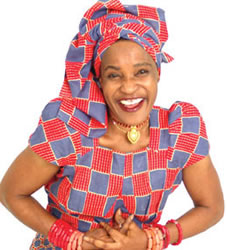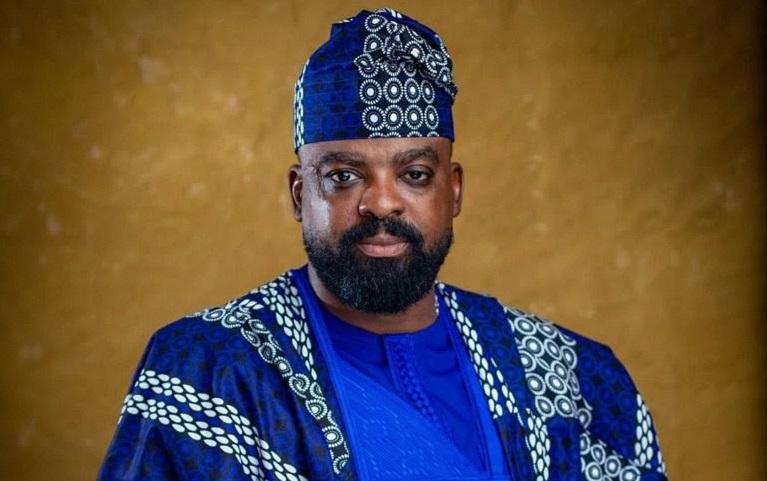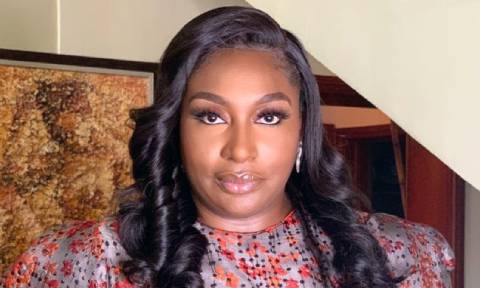
He is called the Shiekh. Not of any oil-rich country in the Gulf. He is, rather, Shiekh of the Nigerian movie industry known as Nollywood. His name is Zeb Ejiro and his contributions to the movie industry stands him out as a grand master of the make-believe industry. Most of the brightest stars the sector can boast of today were midwived by him. Just as he produced most of the films that raised the industry to international recognition.
Last week, https://www.nigeriafilms.com was hosted by Ejiro at his Surulere, Lagos, office. Ever amiable yet thorough, Ejiro took us, not only back to memory lane, he also harped on the problems and prospects of the industry and why a major reshuffling must take place in some parastatals in charge of the industry.
Ejiro, in his more than 25 years in the entertainment industry has been instrumental to major productions such as Nneka the Pretty Serpent, Ripples, Sakobi, Fatal Inheritance, Candle Light and several others.
Currently, the Isoko, Delta State-born Ejiro, is engrossed in a privately-owned movie academy which he set up in his state – an institution that he said would impact rich knowledge to those who want to take up acting or television business as a career.
Over the years, this Mass Communications graduate of the University of Nigeria, Nsukka, has held enviable positions, including being president of the Association of Movie Producers (AMP). He is presently the Vice Chairman, Board of Trustees, AMP, Trustee, Directors Guild of Nigeria and a member of a few other organisations.
He had his elementary education at Ajegunle, a hugely populated Lagos suburb, then went on to Kwara State to further his education. This was after his return from Equatorial Guinea where he was born.
Ejiro is married to Joy, a woman he describes as “very lovely” and they have seven kids together, all of who are presently doing very well.
Enjoy our discussion with the Shiekh.
How would you describe the various movie awards in the country? Do they meet the standards?
I think the only one that stands out is the AMAA (African Movies Academy Awards). They have done well so far. Because of them, there is something we look forward to every year. I tell you that at this point, the movie industry is so boring because activities are not taking place. Things are not happening as they used to. I am not saying AMAA is perfect, but they have done well so far through there is room for improvement.
Why are you called the Shiekh of the Nigerian movie industry?
(Laughs) The truth of the matter is that I did not choose that name for myself. It was one of this tabloids that came up with the name. I guess it was because I was vibrant in various productions. At a point in this industry, I was the one calling the shots. My office at Aguda, Surulere then was the hob of the industry. If you wanted to be part of the industry back then, you had to come there. I guess the tabloid saw all that and just arrived at the conclusion…
And you liked it?
I think again that it is another way of giving appreciation. There was no need for me to fight it.
For years as you rightly said, you ruled the industry with your movies and soap operas. But over the past few years, not much has been heard from you. Whats happening?
You see, Osas, it gets to a point in one’s life when one gets bored about doing one thing again and again, and you just need something more challenging. I think I have gotten to that stage when going to locations is not too exciting anymore. I think I have gotten to a stage whereby I need to start impacting knowledge to people because God has blessed me so much. That is why I have been spending my time building a film school in Delta State. It is called Film and Broadcast Academy. We intend to teach script writing, production management, directing and anything that has to do with film making and television broadcasting. This is where I have been channeling my energy.
You are one of the founding fathers of the industry, which is more than 15 years now. Would you say it has fared well?
The industry has done well, yes. But, atimes, tears run down my cheeks because this is not the industry we built. It is presently in total comatose. It is down and if care is not taken it will be out. Training is lacking in the industry. People are not trained. Most of the people you see in the industry today came in through apprenticeship. Apprenticeship is good, but it is better to go and get formal training, because you’ll raise your standard. When you go through our storylines today, they are so weak. When you sit to watch a movie, you’ll notice that you can tell the end from the beginning, no suspense anymore. You’ll find out that scripts are being written at locations. This is very unfortunate. You’ll see an actor in two movies and you can’t tell the difference. No characterisation. Also, there is the distribution network problem. You see, Emeka Mba came up with this initiative and we rushed to buy into it. I personally spoke to him, that I was going to work with him to make the initiative work; but as I speak with you, there is nothing on ground. It’s sad. No structures. I have a movie I just shot. A sequel of Sakobi and I can’t release it because there are no structures. I was with Gab Okoye, president of licensed distributors and I asked him what the problem was. He was livid because he didn’t know. We have concluded now that all that happened at Planet One in connection with this initiative was a charade. If you look at it well, the D-G’s of Censors Board and the Nigerian Film Corperation are spending their fourth year. If you measure the progress between when they came in and now, you’ll ask yourself what they’ve achieved. If you ask me, I’ll say: ‘no significant one. No development at all.’ I think at this point in time, my take is that there should be a shift. There should be a change of guard. We have a new Minister of Information and I think she should inject new blood into the Censors board and the NFC.
Let’s go back to the beginning. How did you get into the movie industry?
It was sheer luck. I was home one day and there was an announcement on television for people who could write a play script for 30 minutes. They requested that it should be sent to the Nigerian Television Authority. Selected candidates would be trained and given a job. So I wrote a play entitled. But My Ring on My Grave. It was a horror piece. Then I sent it. So, one day, someone called me and asked me to buy the papers that my name was there. Twenty-seven people were invited out of about 5,000 people who applied from all over the industry. We were trained by NTA and BBC.
What year was this?
Nineteen eighty-five. We were trained in script writing, directing / producing, etc. So after the programme, I created my first soap opera called Ripples. It ran for five years. Till date, it is the longest uninterrupted TV soap opera on NTA.
After the training, did you work for NTA?
Yes. I stayed with NTA for a very short while, because like I told you, I get bored easily. When I left, I was still writing for NTA on Village Headmaster, Second Chance, etc. Then at a point, I got tired of writing. I needed something more challenging. So, I thought I should create my own soap opera. That was Ripples.
After Ripples, what followed?
I moved on to Fortunes, then changed the name to Mega Fortunes. After that, I moved to the movie industry. The first movie I shot as a director was Nneka the Pretty Serpent. Then, Fatal Desire where Hilda Dokubo debuted. Ikoko 2 followed. I produced Mortal Inheritance.
Many of your productions launched quite a number of today’s Nollwood stars to stardom. When you see them, what comes to your mind?
First of all, I will say I am one of the richest and happiest producers/directors in the country today, in the sense that these are the same people who walked into my office years back looking so ordinary, begging me to make them stars. Many of them are about the biggest today and they have been working so hard making names for themselves. All of them too accord me that respect from time to time. I got Omotola Jolade-Ekeinde a Hollywood movie with Genevieve Nnaji and we all travelled. She shed tears and told me that I have been instrumental to her success. She said she was going to show her appreciation someday and that what she was going to do, I’ll be surprised. I cried when she said that. Genevieve said the same thing too, because I gave her major break-through. Regina Askia, Lis Benson, RMD, Ngozi Ezeonu, Jennifer Okere, Alex Osifo-Omiagbo, etc. After an award ceremony one day, Chief Raymond Dokpesi called me and said that more than 80 per cent of people who received awards that day dedicated it to me, meaning I must have done a lot in their lives. I think it is based on this that the federal government commended my contribution by giving me the honour of Officer of the Order of
the Niger (OON).
Tell me about your family?
I am from a family of five. My mother and dad with three boys. Peter Red Ejiro is my elder brother while Chico Ejiro is our baby brother.
How come the Ejiro brothers are in the movie industry?
My mum had a strong influence on us. She was addicted to the cinema and always took us along.
Is she a Nigerian?
Yes. She got married to my dad here in Nigeria before they took off to Equatorial Guinea, where I was born.
Your involvement in this industry must have exposed you to a lot of money?
Yes. I told you earlier that I am one of the richest in the industry.
Practitioners are crying out that movies no longer sell. How true is this?
It’s quite true. I think it’s because Nigerians are tired of what we produce. Storylines are shallow and lack depth. Plots are nothing to write home about. When there is nothing to keep you glued to your set, you switch it off. To change this, we need a change at the top. We need people who can handle the mantle of leadership. We need people who have vision. Training schools should be empowered to train us. We want a governing body. We need MOPRICON for the movie industry as the lawyers have their own NBA and Doctors, NMA. MOPRICON should be empowered as the regulatory body, so that you don’t just crash into the industry. We need to raise standards, so that we can do more professional jobs so that we will be able to compete internationally.
I remember that when Emeka Mba, D-G of the Censors Board was appointed, it was applauded by top men and women in the industry, including you. But now, you want him out. Don’t you think that his hands may have been tied by the same people who appointed him?
People should be able to take responsibilities for their shortcomings. If his hands are tied, let him resign. If he doesn’t, he is going to impoverish other people who are looking up to him. That’s the truth. I know him very well. When he took over, I said ‘well, he is a young vibrant man and definitely he is going to bring a change.’ He actually put into motion things that would help make change but along the line, I don’t know what happened.
Now you say people are complaining that movies are not selling. It means some people are not doing their jobs. This industry is being funded by the private sector. The Government can’t say they have done anything. What we need are structures. Even the Nigerian Copyright Commission, what are they doing? I look at my friend, Adebambo Adewopo of the copyright commission and ask: what is their duty? In fact, in Nigeria we don’t even need it. What is their job? What we need to do is to licence collecting societies. They can facilitate the arrest and prosecution of those pirating my works. NCC today cannot prosecute. So what is their essence? If the government still wants it, then let them put a vibrant person there who can bring about changes. Same thing with the Nigerian Film Corporation. This is a time to make a significant change, because this industry can create huge jobs for the unemployed. But as it is now, you’ll see that even those in the industry are leaving and this is not good for the economy. Is it only when you take people to London to do a road show, then you say you’ve contributed to the industry? How does it reflect to the growth and cash flow. It is funny. This is the time the ministry/government should make a significant change.
When are you releasing another movie?
I told you that I have finished shooting, but I will not release it because of the situation at hand. I have spent nothing less than eight million naira but if I release it in this market, I will go bankrupt. If the distribution structure does not take off immediately, there is going to be problems. This industry is suffering. Don’t let anybody deceive you that they are making money. All the big movie-makers have stopped.
Some people say Multichoice is contributing to the fall of the sale of movies.
What’s your take on this?
I don’t agree with that school of thought. I will rather say that Multichoice has helped propagate Nollywood because it is seen all over Africa. They give about $3,000 for a movie. No other cable station in Nigeria will give you N40,000 for your movie. You as a producer have a choice. You can say you are not giving your movie to Multichoice. They don’t put a gun on your head. It’s some of this same producers who give their movies out that turn around to say Multi-choice is killing the industry. If you ask me, I’ll rather say that Nigerian television stations are the ones killing the industry.
They don’t pay for movies, instead they go on barter arrangement. They say they’ll give 20 adverts for a movie, but they end up giving five adverts and show. Some of the producers have come together and agreed that from April, 2009, we will fight any TV station showing our movies. Immediately the rights expire, we don’t want to see our movies shown by them again. We don’t need the barter, because we are ready to pay for the adverts . So let them too come and buy the movies.



















